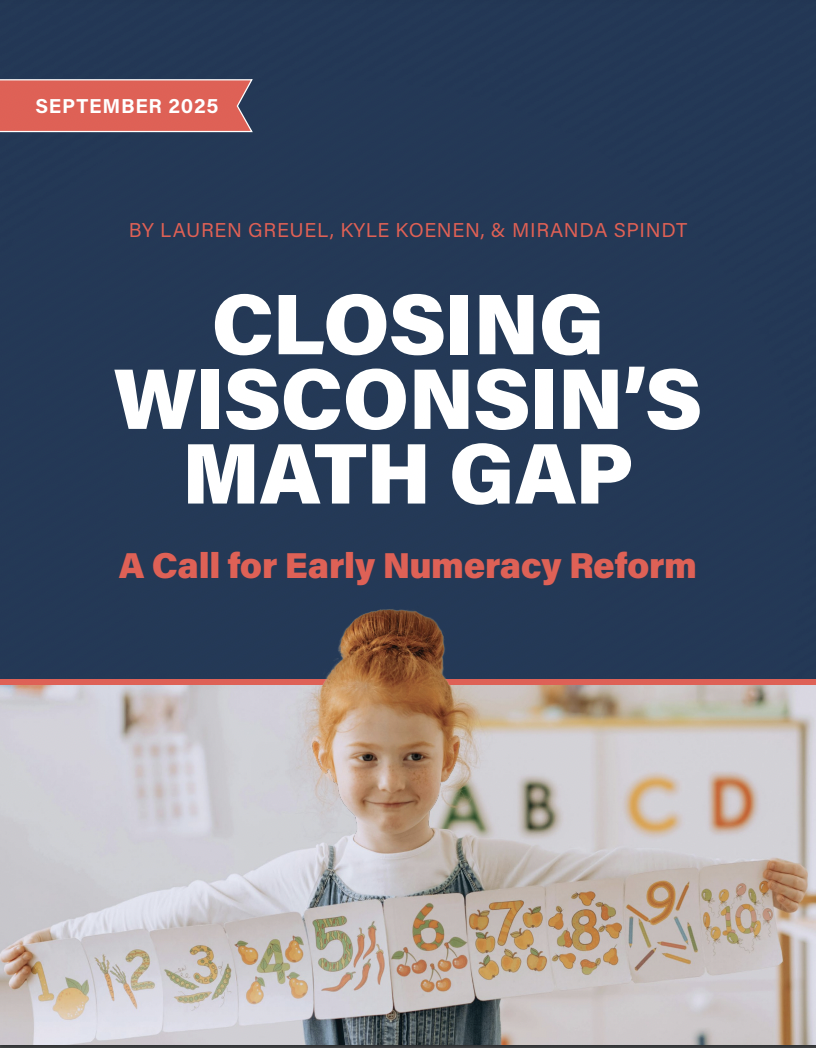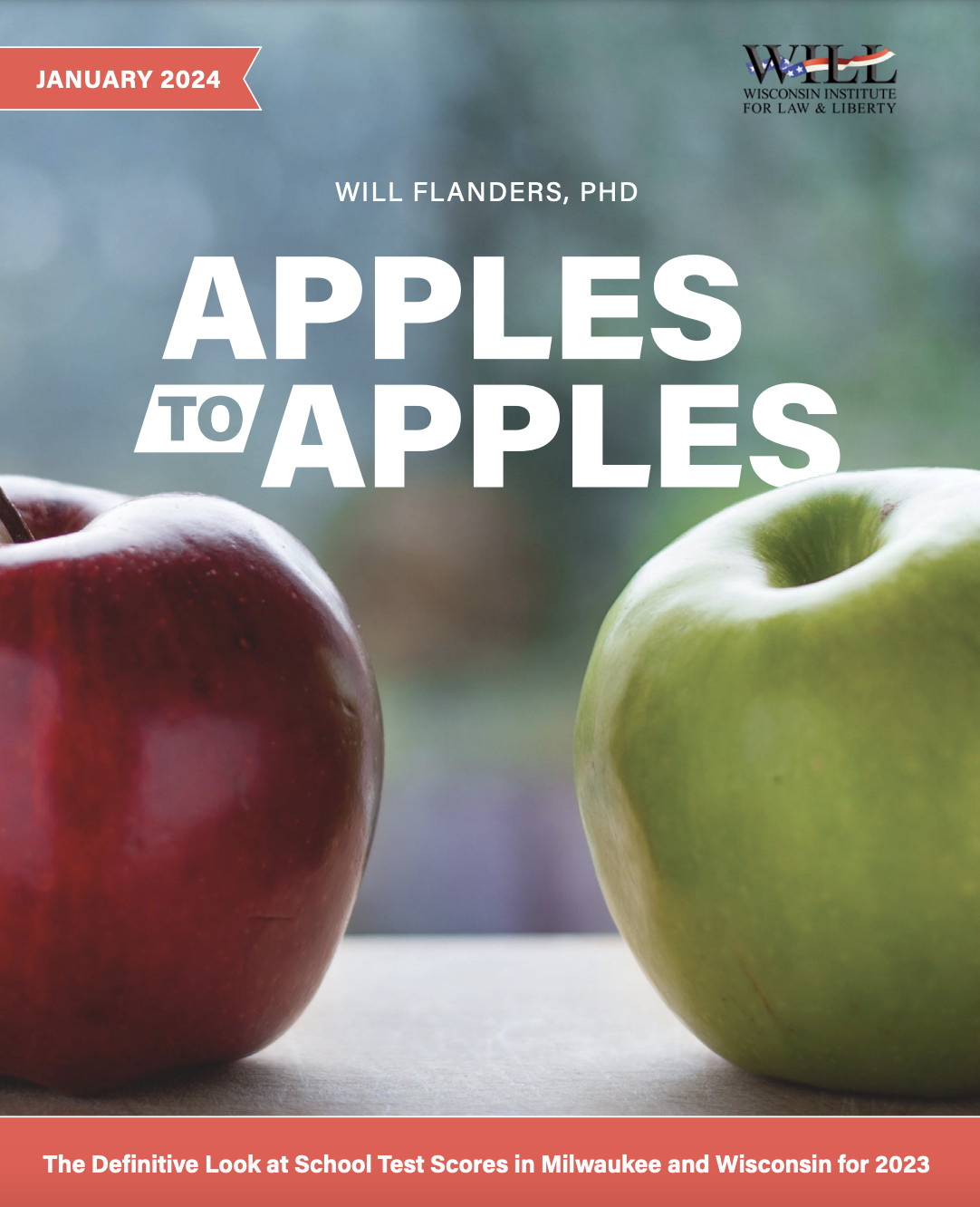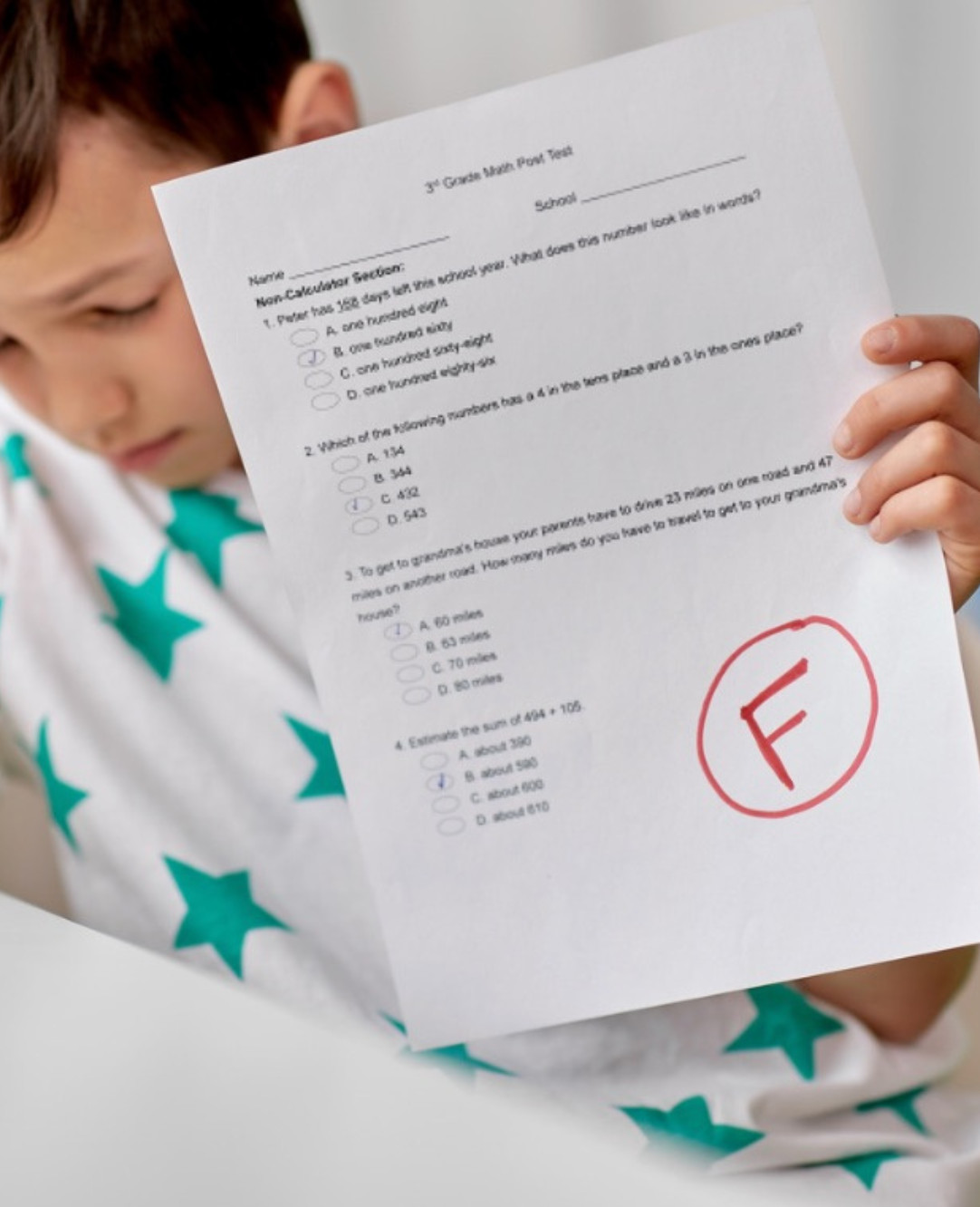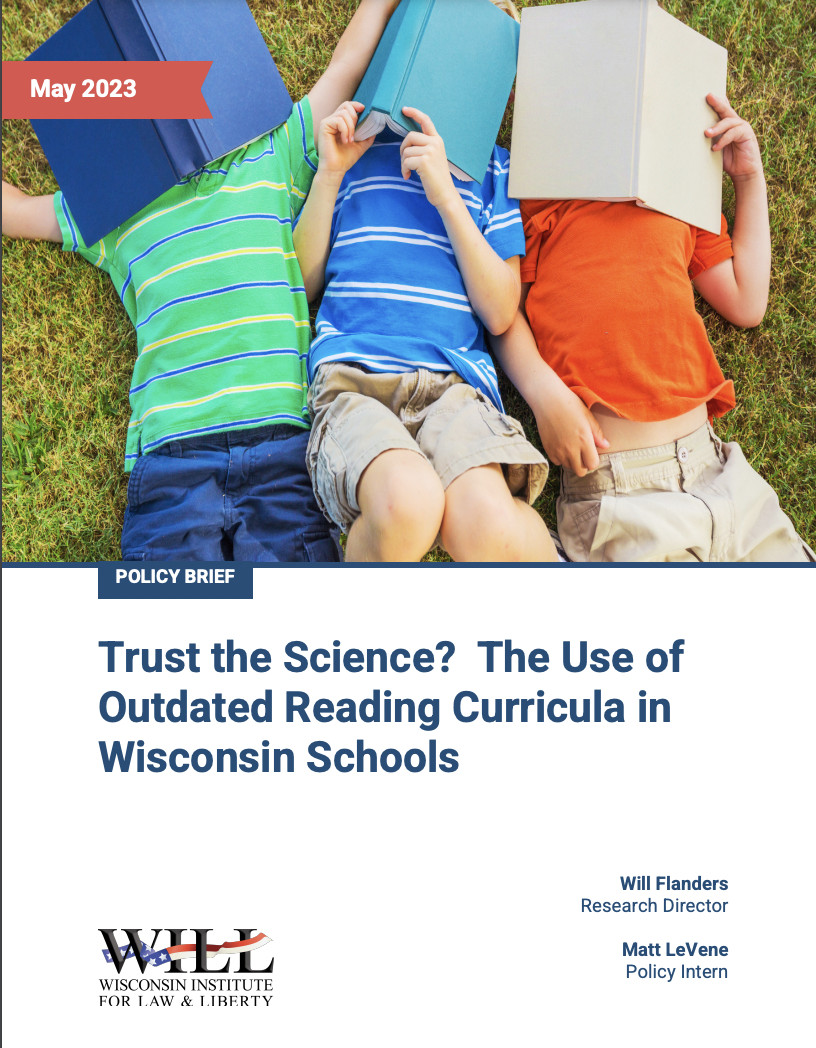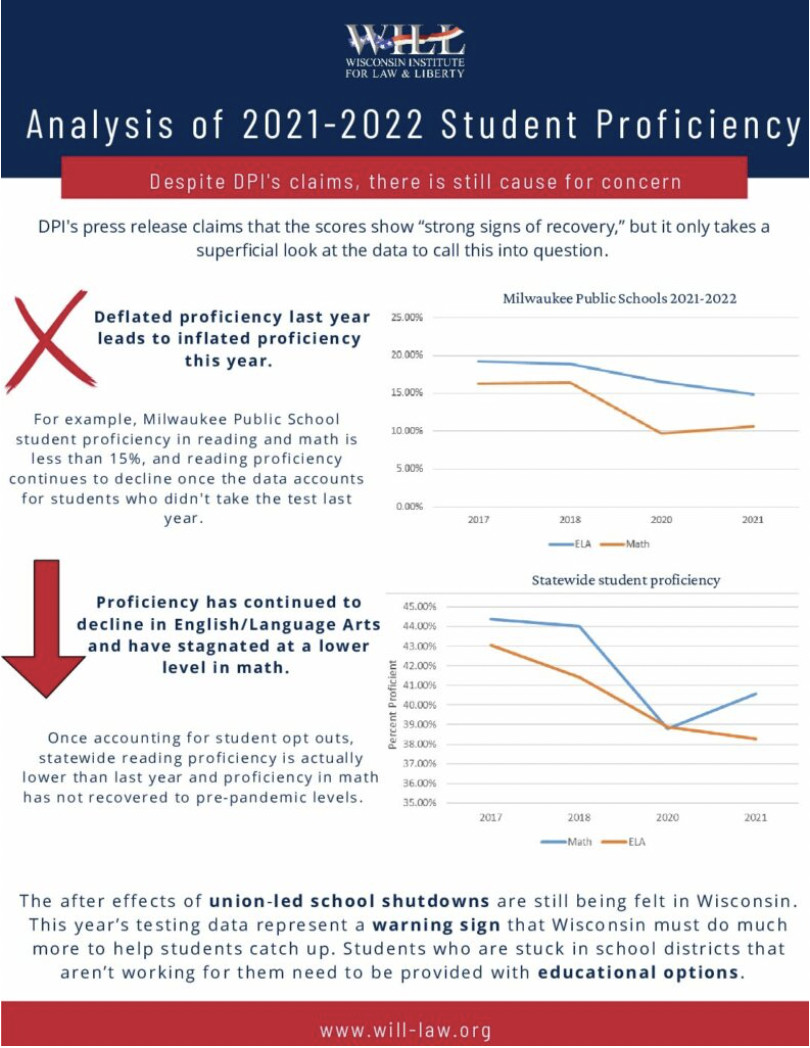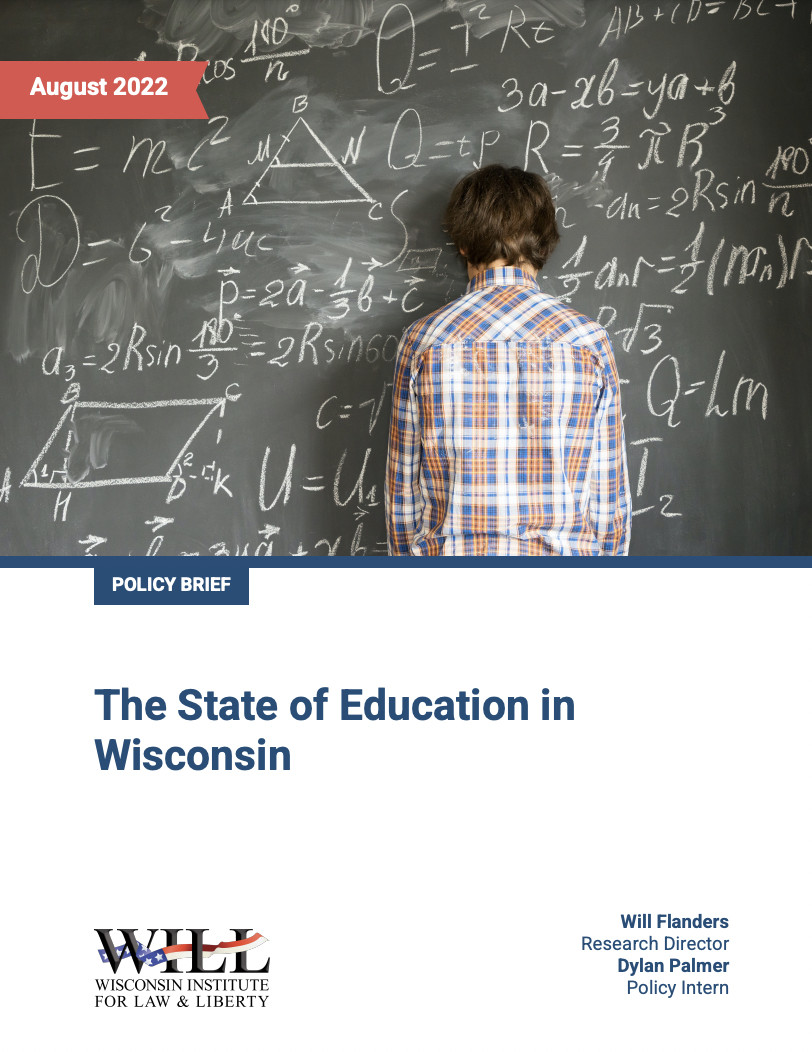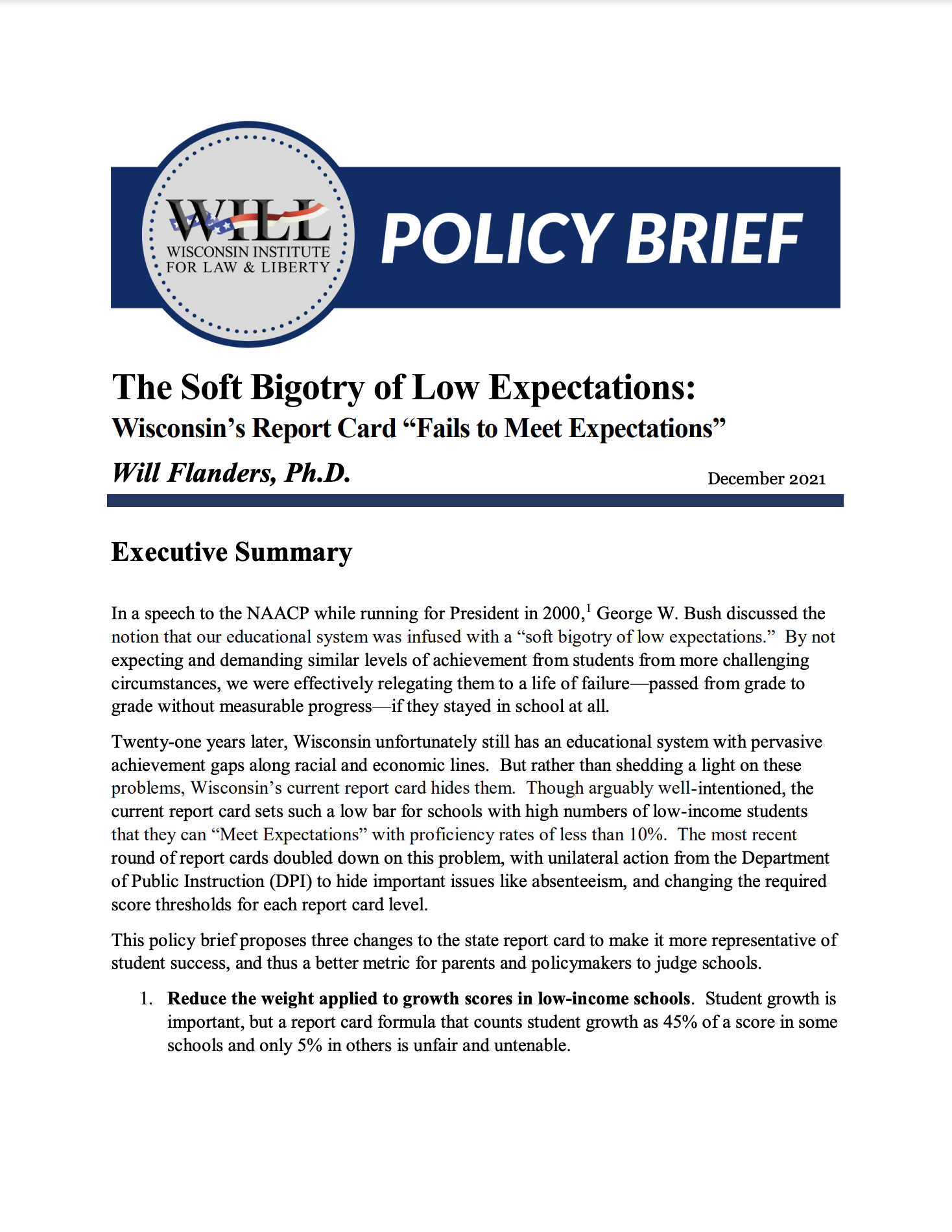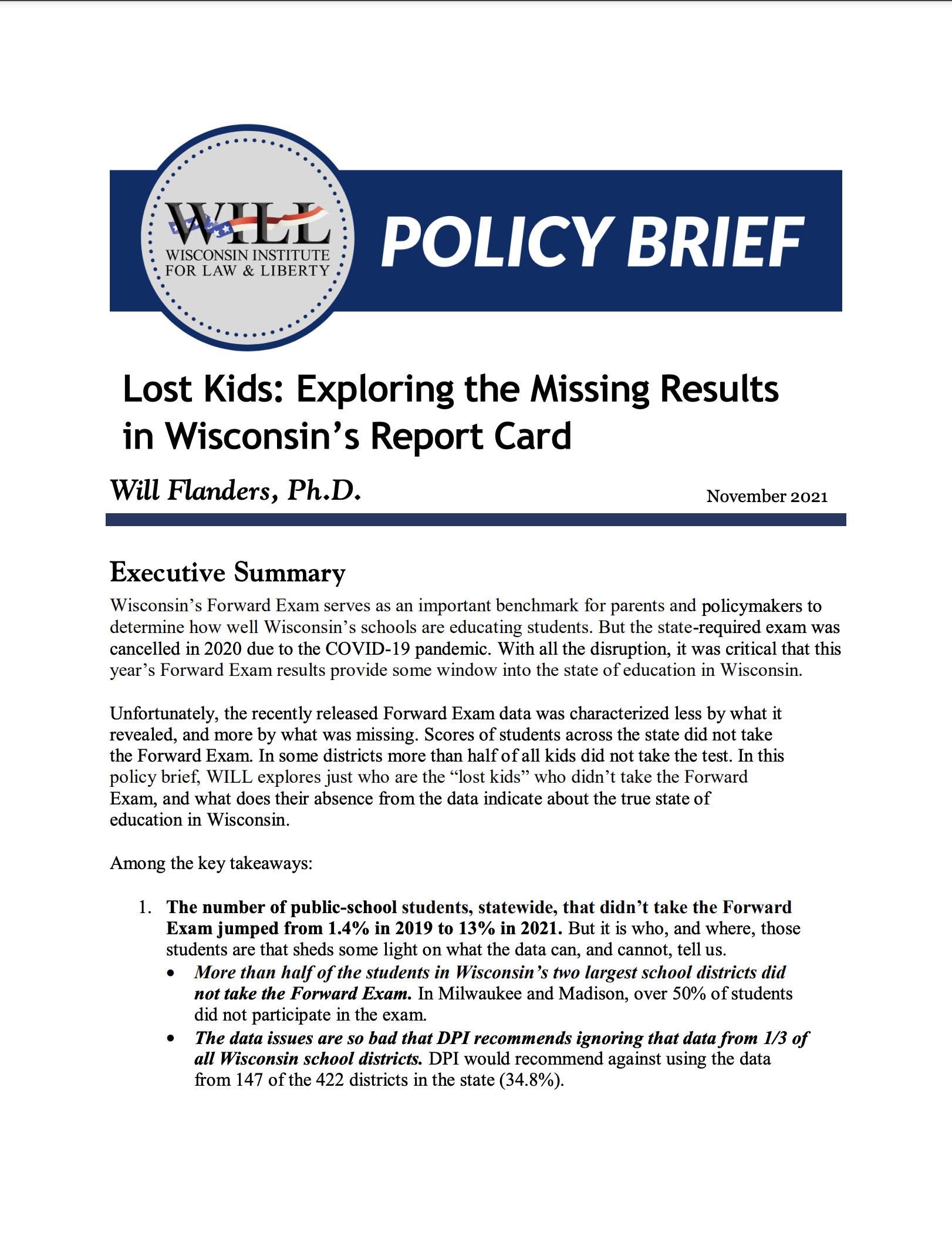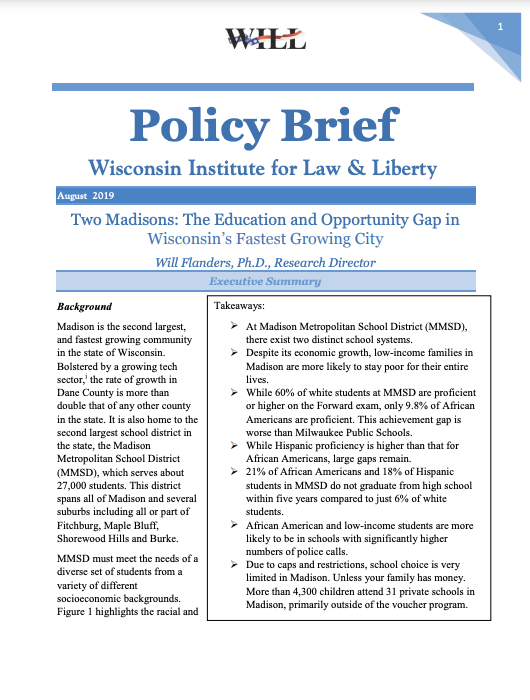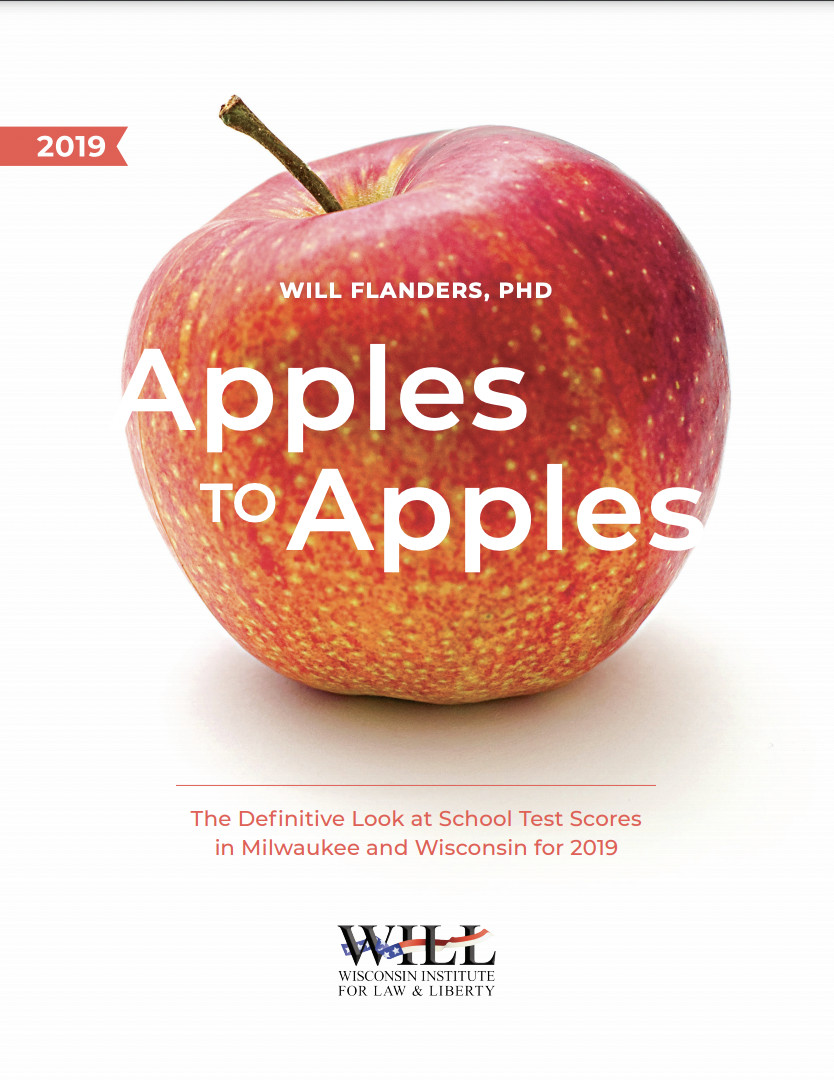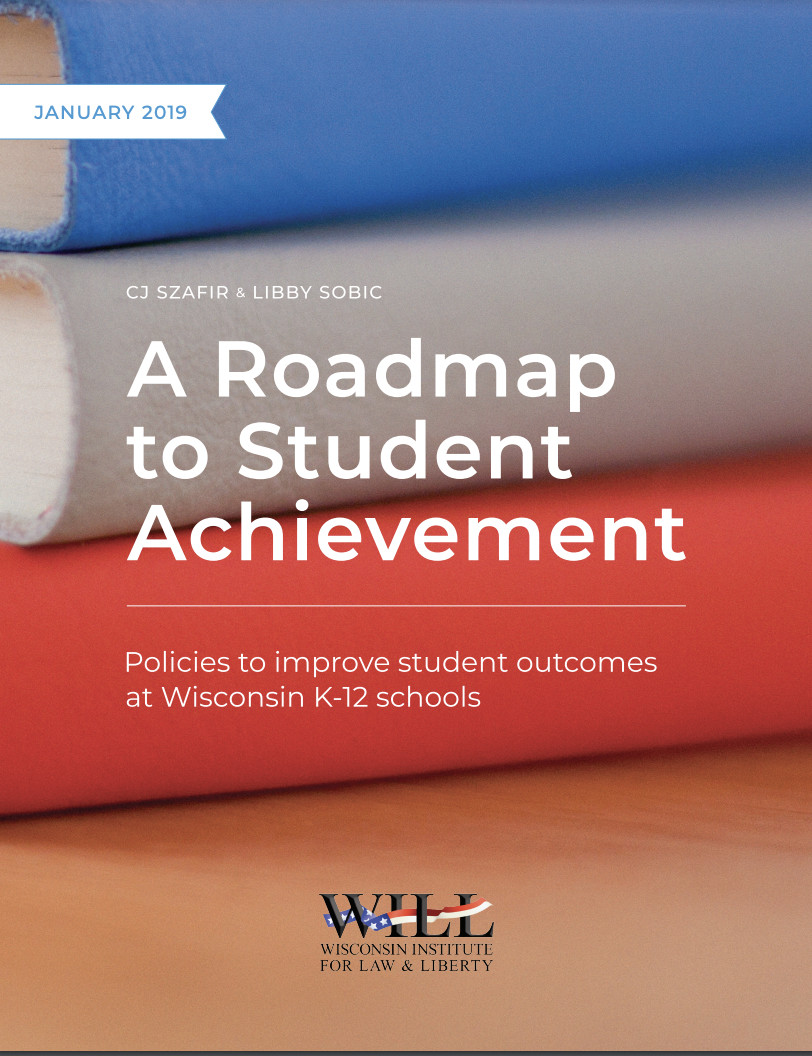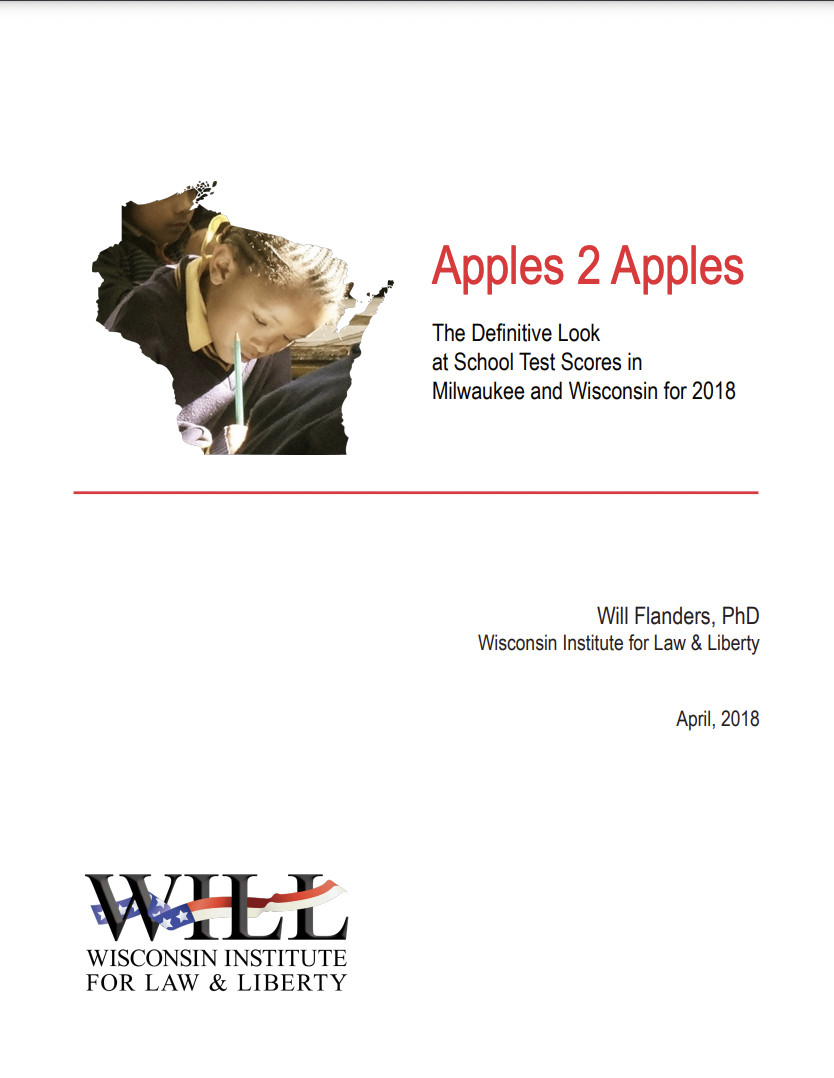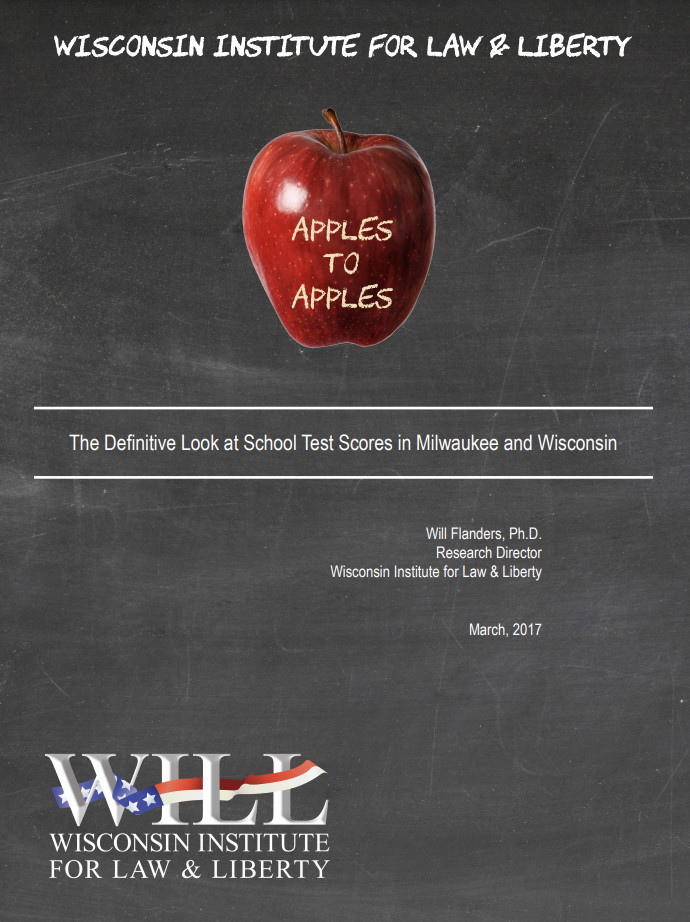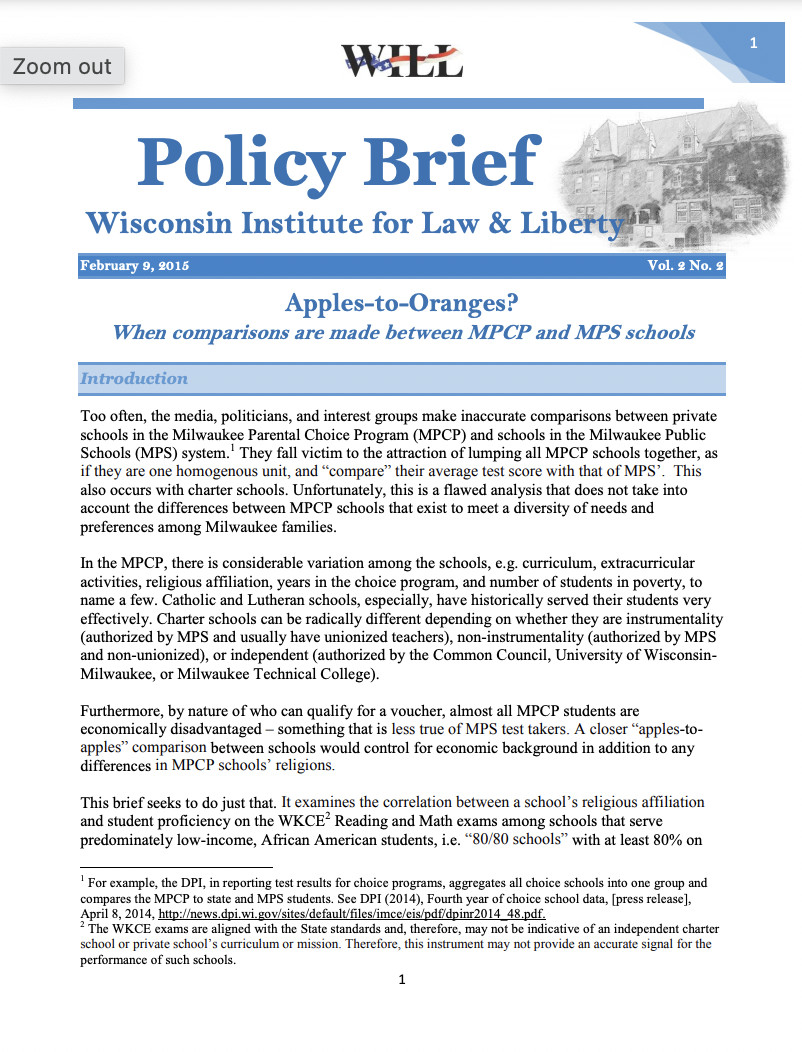For all of the conversation around education, student proficiency and academic outcomes can often take a back seat. Worse, the conversation can be shrouded in myths and bad data.
WILL has authored the Apples to Apples report to provide true comparisons about academic achievement across school sectors. And WILL continues to make the case for policies that will place academic outcomes and student proficiency as a top priority.
Research and Analysis
Closing Wisconsin’s Math Gap: A Call for Early Numeracy Reform
September 2025 | Kyle Koenen and Lauren Greuel
The United States is in the midst of a math crisis. National and international assessments reveal steep declines in performance. Our report examines best practices in other states and outlines how Wisconsin can replicate these proven policies.
Apples to Apples: The State of Education in Wisconsin
January 2024 | Will Flanders
WILL released its annual Apples to Apples report, which gives an honest assessment of how Wisconsin schools and districts are performing.
Truancy Troubles: Chronic Absenteeism in the Badger State
November 2023 | Will Flanders and Lauren Greuel
This policy report investigates truancy trends in the Badger state. Since the COVID-19 pandemic, there has been a growing trend across the nation of students being absent from school. Wisconsin mirrors these national trends.
THE RESULTS ARE IN… WISCONSIN SCHOOLS ARE FAILING KIDS!
October 2023 | Will Flanders
Our analysis reveals that school choice represents an opportunity for thousands of Wisconsin kids to have a chance at a better education
Trust the Science? The Use of Outdated Reading Curricula in Wisconsin Schools
May, 2023 | Will Flanders and Matt LeVene
In this policy report, we explore the correlation between the use of “Whole Language” lesson plans and lower reading proficiency, controlling for other factors.
Apples to Apples: Assessing Wisconsin’s State of Education
January 25, 2023 | Will Flanders
WILL issued its fifth edition of the Apples to Apples report, an assessment of the state of education in Wisconsin. After a two-year pause due to COVID, the policy report resumed last year and now continues with data from the 2021-22 school year.
Wisconsin's nAEP Results are EVEN WORSE THAN THEY FIRST APPEAR
October 25, 2022 | Will Flanders
Despite declining scores across the board, the Wisconsin Department of Public Instruction (DPI) attempted to paint a relatively rosy picture of the results for the state. On the surface, this information appeared to be true—Wisconsin 4th graders tied for 18th in reading and 8th graders tied for 9th. But a look below the surface reveals that Wisconsin families should be far more concerned than these rankings suggest.
CRITICAL THEORIES HUMAN FLOURISHING Alternative Social-Studies Curricula for Wisconsin Schools
October 10, 2022 | Libby Sobic, Scott Niederjohn & Mark Schug
In this paper we offer a number of ideas for Wisconsin school districts interested in a more hopeful social-studies curriculum, one which emphasizes free markets, free people, free enterprise, capitalism, and human flourishing. This paper is broken down into three sections: it begins with definitions and background, then we discuss “Flawed Curriculum and Textbooks” and then concludes with our longest section entitled “Hopeful Lessons for Social Studies Instruction.”
Analysis of 2021-2022 Student Proficiency
September 30, 2022 | Will Flanders
WILL’s data analysis shows that the effects of the union-led school shutdowns are still being felt across the state.
The State of Education in Wisconsin
August 11, 2022 | Will Flanders and Dylan Palmer
How does Wisconsin stack up against other states in K-12 education? An eye-popping list from U.S. News and World Report ranked the Badger State K-12 system as the 8th best in the country. But this rosy picture contradicts other key indicators that Wisconsin students are falling behind. Will Flanders and Dylan Palmer cut through the noise to provide a clear look at public education in the Badger State.
Apples to Apples: The Definitive Look at School Test Scores in Milwaukee and Wisconsin for 2021
May 26, 2022 | Will Flanders
WILL issued the fourth edition of the Apples to Apples report, a definitive and objective analysis of Wisconsin school performance across sectors. This year’s report, the first in three years due to pandemic disruption of the Forward Exam, finds that Milwaukee’s choice and charter schools continue to perform better, on average, than traditional public schools in Milwaukee. But the pandemic has taken a toll as proficiency rates across all schools, statewide, has dropped below 40% for the first time.
The Soft Bigotry of Low Expectations: Wisconsin’s Report Card “Fails to Meet Expectations,"
December 2, 2021 | Will Flanders
A new policy brief from the Wisconsin Institute for Law & Liberty (WILL) highlights why the various elements of the report card intended to address persistent achievement gaps serve to create a scenario where schools with high numbers of low-income students can earn a passing grade, “Meets Expectations,” with academic proficiency rates of 10% or less.
Lost Kids: Exploring the Missing Results in Wisconsin’s Report Card
November 1, 2021 | Will Flanders
The recent release of 2020-21 Forward Exam results was largely characterized by gaps in the data due to a record number of students not taking the test. But those gaps tell a story. WILL Research Director, Will Flanders, examines the missing students and what their past performance could reveal about the true proficiency rates of Wisconsin students during the pandemic.
Needs Improvement: How Wisconsin’s Report Card Can Mislead Parents
September 16, 2020 | Will Flanders
This policy brief explains how Wisconsin’s school report cards, issued by the Wisconsin Department of Public Instruction (DPI), currently work and identify ways to improve the report card to better reflect school performance. Without Forward Exam scores for the most recent school year, the legislature has a unique opportunity to improve the state report card with minimal disruption.
Two Madisons: The Education and Opportunity Gap in Wisconsin’s Fastest Growing City
August, 2019 | Will Flanders
Our report reveals a bifurcated school district where predominantly white, wealthy families attend top schools while low-income and minority students attend unsafe, low-quality schools.
Apples to Apples: The Definitive Look at School Test Scores in Milwaukee and Wisconsin for 2019
June 6, 2019 | Will Flanders
The 2019 Apples to Apples report finds, for a third year in a row, Wisconsin’s charter schools and private schools in the choice program are outperforming traditional public schools. These results, and many more, provide a clear, fair, and consistent look at Wisconsin’s schools, school sectors, and how they perform on a level playing field.
Roadmap to Student Achievement: Policies to improve student outcomes at Wisconsin K-12 schools
January 29, 2019 | CJ Szafir and Libby Sobic
WILL staff have spent more than two years conducting extensive interviews with school leaders, education advocates, and national think tanks in order to come up with serious policy recommendations on how to improve student achievement in Wisconsin. The “Roadmap to Student Achievement” is one of the most comprehensive reform agendas for Wisconsin that is publicly available.
Apples to Apples: The Definitive Look at School Test Scores in Milwaukee and Wisconsin for 2018
April 17, 2018 | Will Flanders
WILL released its second annual report comparing school academic performance across Wisconsin, Apples to Apples. In this new peer-reviewed study, control variables—such as student economic status and demographics—are included to level the playing field and make the clearest possible comparisons between schools for policymakers and parents.
Apples to Apples: The Definitive Look at School Test Scores in Milwaukee and Wisconsin 2017
March 1, 2017 | Will Flanders
This WILL study, for the first time using the most recent test score results, provides parents and policymakers with the clearest possible comparison of student outcomes in each school sector in Milwaukee – as well as in Wisconsin.
Apples-to-Oranges? When comparisons are made between MPCP and MPS schools
February 9, 2015 | CJ Szafir and Martin Lueken
Too often, the media and politicans average WKCE test scores according to each school sector, as if they are one homogenous unit. But, given the differences in private schools in the choice program and public charter schools – and the limitations of the WKCE testing, this is a flawed approach to comparing schools in Milwaukee. WILL’s newest policy brief (found here) shows a better way to form conclusions from the flawed WKCE data.
